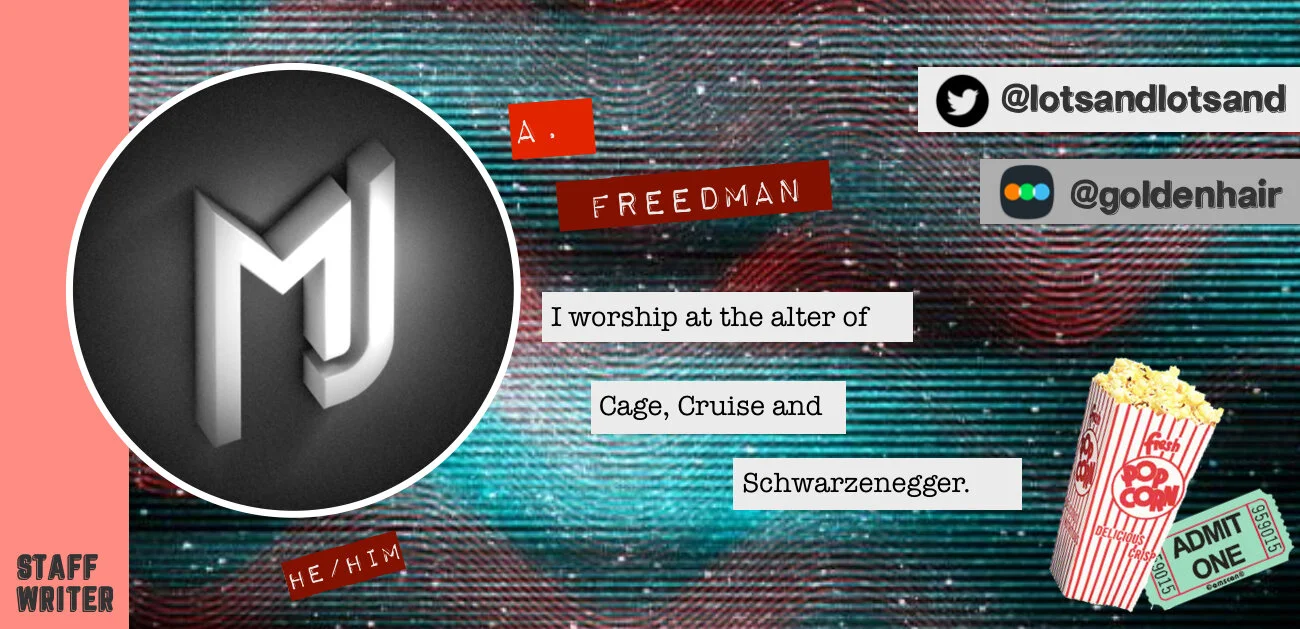THE VIGIL explores historical Jewish trauma through a horror lens
Written and directed by Keith Thomas
Starring Dave Davis, Menashe Lustig, Fred Melamed, Lynn Cohen
Rated PG-13 for terror, some disturbing/violent images, thematic elements and brief strong language
Runtime: 1 hour 29 minutes
In theaters and available digitally Feb. 26
by A. Freedman, Staff Writer
Ever since William Friedkin's The Exorcist, filmmakers have been exploring crises of faith through religiously themed horror films. The Vigil, a feature length debut from writer/director Keith Thomas, seeks to do this in the Jewish community of Borough Park, Brooklyn. Based in Jewish lore and demonology, The Vigil is a compelling modern folktale that mines the trauma and legacy of the holocaust, exploring how it still ripples and impacts Jews today.
As the film begins, we meet Yakov (Dave Davis), a formerly devout Hasidic Jew who has recently left his religious community to attempt assimilation into the outside world. Low on funds, he agrees to take a last minute job as a Shomer: a paid observant who takes a shift sitting with the body of the recently departed to protect them from evil spirits until the mortuary men can pick up the body. He arrives late at night to the house of the deceased–Ruben Litvak–whose body lies under white cloth with his widow, Mrs. Litvak (Lynn Cohen, in a posthumous performance), resting upstairs. Almost as soon as he settles in, the weird stuff starts happening.
The details on Yakov's controversial departure from his community are scant at first, but soon it becomes clear he has darkness in his recent past he is running from. It seems to overlap with the darkness and terror that soon envelops his experience at the Litvak house. We see that Ruben has never been truly alone, despite losing his family as a young boy in the Holocaust. As far back as Buchenwald, the horrors he experienced mean that he has brought something with him wherever he has gone.
Some of the plot details that inform the background of both Ruben and Yakov's traumas reminded me of this article by Slate's Sam Adams. The Vigil seems to find the real horrors of the Holocaust and modern day anti-semitic violence to be in need of heightening–as if they were not bad enough. Perhaps this way it can achieve more relatability and universality, but in doing so, it cheapens the emotional impact of the story. It is as if The Vigil doesn't want to tell a Jewish story, but simply use the iconography and rituals of Judaism as background.
While you rarely see this community represented in a genre film, much of the style of The Vigil feels right in the Blumhouse wheelhouse (Blumhouse acquired this before handing it off to IFC Midnight). The score is ominous and synthesizer-based, and the scares are twitchy and jumpy. It almost feels like it could be folded into the Paranormal Activity series, without much needed change.
Nevertheless, The Vigil is an effective indie horror entry in the same vein as The Babadook, His House or Relic, exploring the anguished interiors of broken humans, with horror conceits as metaphor for past trauma. There is something profound here about the undue burdens that people carry with them as they suffer in silence and isolation, and the way that suffering manifests in the body. The Vigil will leave you wanting to take a deep breath, hoping to perhaps release a little emotional weight yourself.



